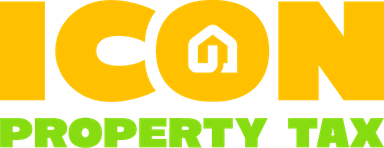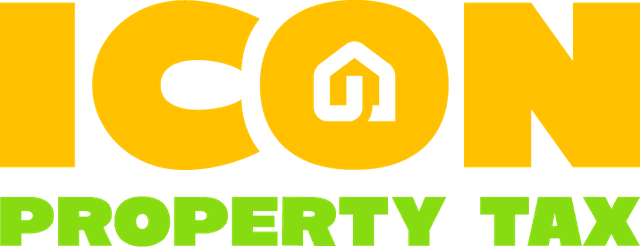North Carolina Property Tax
Property taxes are a fact of life for North Carolina property owners, but that doesn’t mean your bill is always right. Across the state, homes and commercial properties are assessed by counties each year, and those assessments directly impact how much you owe in property taxes. Unfortunately, those valuations are often off the mark.
At Icon, we step in to protect North Carolina property owners from overpaying. Our team combines local insight with deep property valuation expertise to review assessments, build strong appeals, and push back when valuations don’t reflect reality. We’ve helped thousands of clients reduce their tax burden, and we only get paid when we’re successful.
In this piece, we’ll examine North Carolina property tax, and the essential steps to take.
Property Taxes In North Carolina: What You Should Know
In North Carolina, property taxes are a significant part of homeownership and real estate investment. These taxes fund essential public services like schools, infrastructure, and emergency response, but that doesn’t mean your assessed value is always accurate or fair.
Each year, counties in North Carolina assess the value of your property to determine how much you owe. But valuation methods aren’t perfect. Market shifts, neighborhood changes, or data inaccuracies can lead to assessments that don’t reflect your property’s true value, which could mean you’re paying more than you should.
This is where Icon steps in to advocate for you, making sure you don’t pay more than necessary. Our goal is simple: help North Carolina property owners fight for fair property tax bills, and only charge when we succeed in reducing them.
Why Property Owners Turn To Icon
Icon is built on one simple idea: no one should pay more in property taxes than they truly owe. For homeowners, landlords, and commercial property owners across North Carolina, we’re here to challenge inaccurate valuations and help reduce overpayments, without upfront costs or hidden fees.
Our team understands the complexities of North Carolina’s property tax system, and we use market data, valuation expertise, and local insight to build strong appeals. When you work with Icon, you’re not getting a generic service. You’re getting a partner who knows how to navigate your county’s process, and who fights directly on your behalf.
From single-family homes to commercial real estate, property owners trust Icon because we only get paid when they save. That’s our way of keeping your interests at the center of everything we do.
Icon doesn’t charge upfront fees, and you only pay if your property tax bill is reduced. It’s advocacy with no risk and real results. Start your appeal today.
How Icon Helps You Fight For Fair Property Taxes
Every property tax appeal begins with one question: Was your property assessed fairly? At Icon, we dig into the details. Our process starts by analyzing your property’s assessed value against current market data and comparable properties in your area. If there’s a case to be made, we prepare and file a formal appeal on your behalf, and handle all communication with the local appraisal district.
There’s no need for you to chase paperwork or figure out the system on your own. Our experienced team manages the process from start to finish, including negotiations and hearings when needed. You stay informed, but we do the heavy lifting.
And if your valuation doesn’t come down? You owe us nothing.
We only charge a fee if we’re successful in reducing your tax burden. That’s how confident we are in our ability to advocate for you.
What To Expect When You Work With Icon
Working with Icon is simple, transparent, and built around your needs. We’ve streamlined the process so North Carolina property owners can get started in just a few minutes, and leave the rest to us.
You’ll begin by submitting your property information through our secure online form. From there, we review your assessment, determine if a case exists for appeal, and take it from there. You don’t have to show up to hearings, navigate complex tax codes, or prepare documentation, we handle it all.
Throughout the process, our team keeps you updated on progress. And because our service is performance-based, you’ll never pay unless we secure actual tax savings. That means no upfront costs, no subscription fees, and no surprises.
This isn’t a software platform or a DIY guide, it’s a team that steps in to advocate for you, backed by local knowledge and data-driven strategy.
If you suspect your North Carolina property has been overvalued, don’t navigate the process alone. Let Icon stand up for your right to a fair tax bill.
Reviewing Exemption Applications With Care
While Icon does not offer exemption filing as a standalone service, we do provide one important layer of support: reviewing your exemption application before you submit it.
Exemptions, such as those for elderly homeowners, veterans, or disabled individuals, can offer meaningful relief from your property tax bill. But mistakes on an application can delay or jeopardize approval. That’s where our expertise comes in.
If you’re an Icon client, our team will carefully review your exemption paperwork, help identify common issues, and confirm that everything is in order before you send it to your county or local authority. It’s one more way we help protect your right to fair and accurate taxation.
Start Reducing Your Property Tax Burden Today
Paying too much in property taxes isn’t just frustrating, it’s unnecessary. Icon is here to make sure North Carolina property owners are treated fairly, and we do it with a model that puts your success first.
There are no upfront costs, and you won’t owe a dime unless we’re able to reduce your assessment. From residential homes to commercial properties, Icon takes the pressure off your shoulders and handles the process with precision, clarity, and experience.
Getting started is fast, simple, and risk-free. Let us help you take the first step toward potential savings.
With deep local knowledge and a proven track record, Icon is a partner you can rely on. Learn more about our approach and why so many choose us year after year.
Frequently Asked Questions About North Carolina Property Tax
What is the average property tax rate in North Carolina?
North Carolina’s average effective property tax rate is around 0.77%, which is lower than the national average. However, rates can vary widely by county.
When are property taxes due in North Carolina?
Property tax bills are typically mailed in July or August, and payment is due by January 5 of the following year. Late payments can result in penalties.
Can I appeal my property tax assessment every year in North Carolina?
Yes. Property owners have the right to appeal their assessment annually, but deadlines and procedures vary by county. Early action is recommended.
How do counties determine the value of my property?
County assessors typically use mass appraisal systems, relying on comparable sales, market trends, and property characteristics. These systems can miss nuances.
Does North Carolina offer property tax exemptions?
Yes. Exemptions exist for seniors, disabled homeowners, veterans, and certain nonprofit properties. Applications must be submitted with proper documentation.
Are there limits to how much my property taxes can increase in a year?
North Carolina does not have a statewide cap on annual tax increases, but some local jurisdictions may apply tax rate changes more gradually.
Will a recent home renovation affect my property taxes?
Yes, improvements such as additions or remodels can increase your property’s assessed value, which may result in higher property taxes.
Can I still appeal if my property value dropped after my assessment?
Yes. If the market value has declined and your assessment is outdated or inaccurate, you may have grounds for an appeal, even if the timing is tight.
Is it possible to appeal property taxes on rental or investment properties?
Absolutely. Property tax appeals apply to all types of real estate, including rental units, commercial buildings, and vacant land.
How do I check my current property tax assessment in North Carolina?
You can find your assessment information on your county tax assessor’s website or by contacting their office directly. Most counties provide online access.

